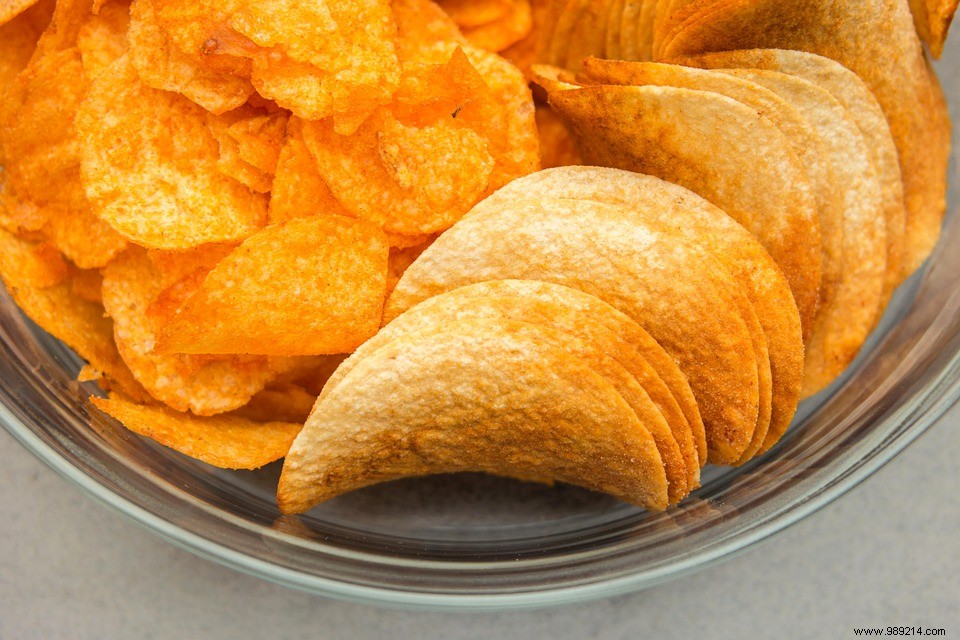A recent French study indicates that about a third of the foods on the plate of the French are made up of ultra-processed foods. In addition, the consumption of these foods correlates with a lower protein intake as well as a lower diversity of these same proteins.
Let's first remember that Ultra-Processed Foods (UTFs) are a category of foods from which nearly half of our calorie intake comes. . Chips, chocolates, soups, fries, soft drinks, sweets or even breakfast cereals are perfect examples. You should also know that these foods go through multiple processes such as extrusion or molding, destroying their "health potential". In addition, they contain many so-called "denatured" ingredients, most of the time additives of various kinds.
In general, ultra-processed foods are considered unhealthy and consuming them in excess would be synonymous with an increased risk of developing certain pathologies. In addition, a US study published in 2016 showed that these same foods would lead to the consumption of more calories.

On May 8, 2021, a study published in the 'European Journal of Nutrition and led by the University of Paris-Saclay took into account data from the INCA 3 cohort. As indicated by ANSES in 2017, the latter aims to identify dietary habits the French. The study looked at the correlations between the amounts of unprocessed, minimally processed, processed or ultra-processed foods (the four food groups), protein consumption habits and the quality of food in general.
According to the results of this work, the French ingest a significant amount of ultra-processed foods, namely 31% on average – compared to more than 50% in the United States. Moreover, their consumption concerns much more young people under 35 (regardless of sex) as well as people belonging to the lowest socio-economic class. The study also suggests that people who eat more ultra-processed foods have less protein intake, but also less diversity. These contributions come from vegetable proteins from refined cereals. Consumers of minimally processed products have higher intakes, richer in animal protein and greater diversity in plant protein.
Consumers of ultra-processed foods – due to these low intakes and lack of diversity – generally have an unbalanced diet . However, this lack of balance mainly concerns nutritional intake. However, taking into account the protein factor, the results improve considerably. Finally, the researchers point out that ultra-processed foods must represent a minority share within a balanced diet.